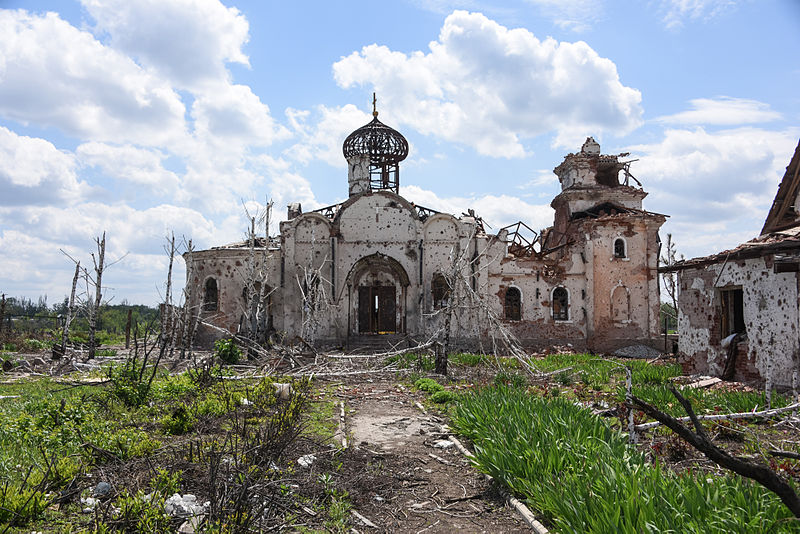
There is no doubt that the war in Ukraine and the support given by Patriarch Kirill and some Russian bishops to the Russian government will have lasting consequences for Orthodox Christianity, first in Russia and Ukraine, but also around the world. Within the Moscow Patriarchate, reactions have been ranging from distancing to taking a hard line. In Lithuania, Metropolitan Innocent of Vilnius has publicly stated that Kirill’s “political statements about the war in Ukraine are his personal opinion” and that he does not share them (LRT English, March 18). In Paris, Metropolitan John of Dubna, the head of the Archdiocese of Russian Orthodox Churches in Western Europe (a group under the Moscow Patriarchate, but with its own features), has written to Kirill that he could not support his statement and has left local clergy free to decide whether or not to commemorate the patriarch during Divine Liturgies (France Inter, March 28). At the other extreme, Metropolitan Mitrofan of Murmansk, near the border with Norway,sees the war as a war for Orthodoxy and has preached that “the mission will be accomplished because if not, it will be the end of everything, and the Dark Prince will reign. Russia is the lastbarrier, you and I are the last ones to oppose Antichrist” (The Barents Observer, March 25).
Most observers agree that Ukraine will be lost for the Moscow Patriarchate. While it still retains a substantial number of clergy and parishes in Ukraine, 15 Ukrainian bishops under Moscow have already ceased to liturgically commemorate the patriarch, and some clergy are calling for autocephaly. What is less clear is the path that the Ukrainian Orthodox Church of the Moscow Patriarchate (UOC-MP) will follow. In an article on the UOC-MP at this crossroads, Fr. Nicholas Denysenko (Valparaiso University) deems it unrealistic to think that the Moscow Patriarchate would grant autocephaly to its autonomous church in Ukraine. He considers a self-declaration of autocephaly to be unlikely as well, since the church would then neither be recognized by Moscow nor Constantinople. According to him, the most viable option would be negotiations with the Orthodox Church of Ukraine (which received its autocephaly from the Patriarch of Constantinople in early 2019), despite the disputes and distrust between the two ecclesiastical bodies. “It might be possible to adopt a gradual process of unification…without immediately reconfiguring eparchies and assignments” (Public Orthodoxy, March 31).
Cyril Hovorun (University College Stockholm) sees another possibility, which would, however, require a change of power in Russia, something to which the war could ultimately lead: the transformation of the Russian Church itself from a centrally controlled toa synodal church (Meduza.io, Russian edition, March 23). There are indeed voices in the church against the war, as evidenced by the signing of an open letter of opposition by more than 300 Russian clergy in Russia and abroad. For the time being, few parishes and clergy abroad have left the Moscow Patriarchate, with the Russian parish in Amsterdam being the most prominently reported instance. But tensions within parishes should not be underestimated, especially in those areas, such as Europe, where many Ukrainians attend Russian churches. Besides the likely creation of a number of Ukrainian parishes in Europe following the arrival of Ukrainian refugees (assuming they are not able to promptly return to their country), other faithful within Russian parishes and beyond them will raise issues that might lead to stronger demands for autonomous local Orthodox churches.
At an early April talk he gave on Long Island, NY, which was attended by RW, Russian Orthodox journalist Sergei Chapnin said that the Moscow Patriarchate’s loss of Ukrainian Orthodoxy is a foregone conclusion. He pointed to two monasteries—the last church institutions that would cut ties with Moscow and leave the Patriarchate (with conflict brewing even in the mother monastery of Ukraine, the Monastery of the Kyiv Caves). He predicted widespread disintegration of the ties between Orthodox churches outside of Russia and the Moscow Patriarchate, including the traditionalist Russian Orthodox Church Outside of Russia (ROCOR). Chapnin, who edited the Moscow Patriarchate’s journal for 14 years and recently fled Russia under pressure, compared the situation of priests in the Patriarchate to “modern slavery,” where many desire to leave its authority but are prevented from doing so by Kirill. Regarding the global impact of the war, Lucian N. Leustean (Aston University) has gone much further, writing on the LSE’s Religion and Global Society blog (March 3) that the consequence of this “first religious war in the 21st century” might be the breaking of Orthodoxy into two separate bodies, with the Moscow Patriarchate “setting up its own ecclesiastical jurisdictions around the world” on the pattern it has started in Africa [as reported by RW in December 2021].
 Remains of an Eastern Orthodox church after shelling near Donetsk International Airport. Eastern Ukraine, May 2015 (Mstyslav Chernov – Wikimedia Commons).
Remains of an Eastern Orthodox church after shelling near Donetsk International Airport. Eastern Ukraine, May 2015 (Mstyslav Chernov – Wikimedia Commons).